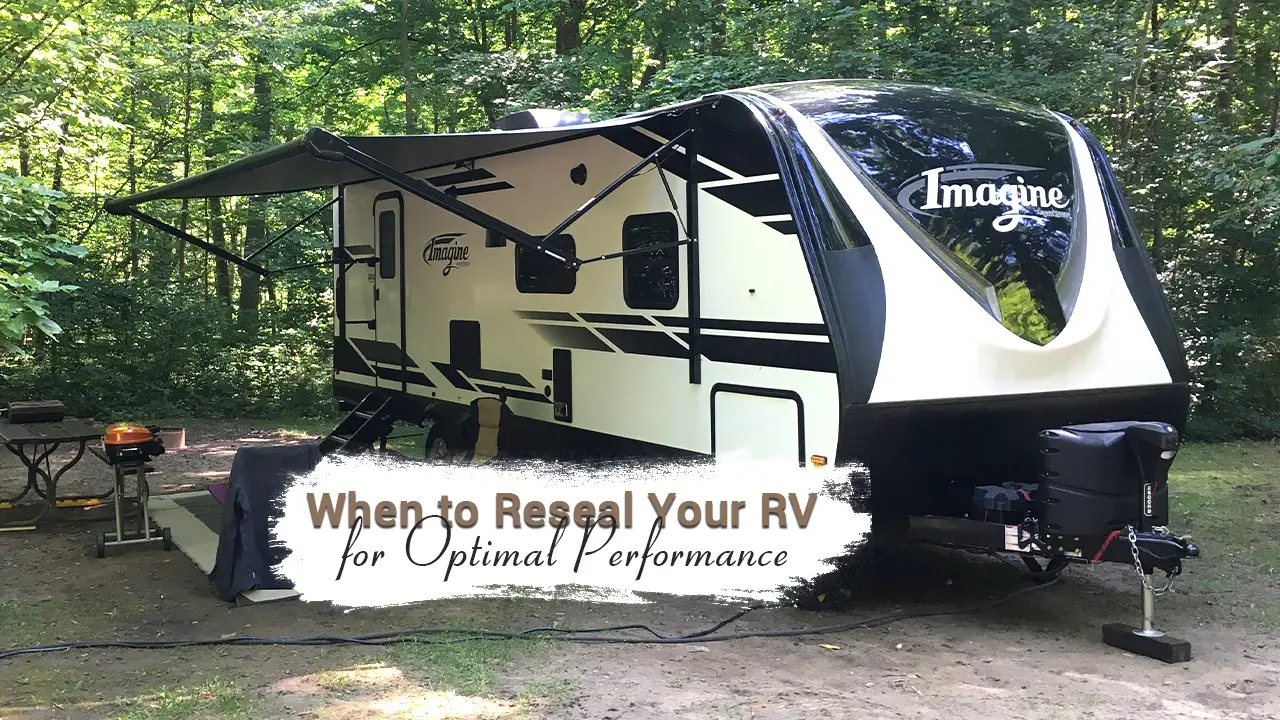RV Maintenance Guide: Reseal Your RV
As an RV owner, it’s crucial to stay on top of regular maintenance tasks to ensure your vehicle’s optimal performance. One essential aspect of RV maintenance is resealing. In this comprehensive guide, we will walk you through the importance of resealing your RV and provide you with key insights on when it’s the right time to do so.
1. The Importance of Resealing Your RV
- Protecting against water damage: A well-sealed RV prevents water leaks, which can lead to costly repairs and structural damage.
- Preserving the interior: Proper resealing helps maintain the integrity of your RV’s interior, preventing water seepage and potential mold growth.
- Enhancing energy efficiency: Airtight seals help keep your RV insulated, reducing the strain on your heating and cooling systems and optimizing energy efficiency.
- Prolonging the lifespan: Regular resealing ensures that your RV stays in top condition, extending its longevity and value.
II. Signs it’s Time to Reseal Your RV
1. Visual inspection:
- Cracked or peeling sealant: Check for any signs of deterioration or wear on the existing seals around windows, doors, vents, and seams.
- Discoloration or water stains: Look for discoloration or water stains inside your RV, indicating potential leaks.
2. Water leaks:
- Rainwater infiltration: If you notice water seeping through windows, roof, or other areas during rainfall, it’s a clear sign that resealing is necessary.
- Interior dampness: Moisture or damp spots inside your RV, especially after a heavy downpour, suggest compromised seals.
3. Drafts and temperature fluctuations:
- Uneven temperature control: Inconsistent heating or cooling can be a result of gaps or cracks in the seals, allowing air to escape.
- Noticeable drafts: If you feel drafts near windows, doors, or any openings, it’s an indication that the seals need attention.
III. Recommended Resealing Schedule
- Annual inspection: It’s advisable to conduct a thorough inspection of your RV’s seals and reseal any deteriorated areas on an annual basis.
- Seasonal check-ups: Before each travel season, examine the seals for any visible signs of wear or damage and address them promptly.
- Additional considerations: Factors such as extreme weather conditions, frequent usage, or exposure to harsh elements may require more frequent resealing.
IV. DIY Resealing or Professional Assistance?
1. DIY approach:
- Choosing the right sealant: Opt for high-quality sealants specifically designed for RV use, considering factors like flexibility, durability, and compatibility.
- Proper preparation: Thoroughly clean and dry the surfaces before applying the sealant, ensuring optimal adhesion.
- Applying the sealant: Follow manufacturer instructions carefully, applying the sealant evenly and sealing any visible cracks or gaps.
2. Professional assistance:
- Complex repairs: Extensive damage or widespread deterioration may necessitate professional expertise to ensure effective resealing.
- Time constraints: If you have limited time or lack experience, seeking professional help can save you valuable time and provide peace of mind.
Resealing your RV is an essential aspect of regular maintenance to ensure optimal performance and preserve its longevity. By staying vigilant and addressing resealing needs promptly, you can protect your RV against water damage, maintain its energy efficiency, and enjoy worry-free adventures on the road.
Frequently Asked Questions
How often do you need to reseal a roof?
It is recommended to reseal your roof on an annual basis to maintain its integrity and prevent water leaks. However, factors such as weather conditions and usage frequency may require more frequent resealing.
What should I use to reseal my RV?
For resealing your RV, it is recommended to use a high-quality sealant specifically designed for RV use. Look for sealants that offer flexibility, durability, and compatibility with your RV’s materials. Consult your RV manufacturer or a professional for specific recommendations.
Should you seal your RV roof?
Yes, sealing your RV roof is essential for preventing water damage, maintaining the interior’s integrity, and prolonging the lifespan of your RV. Regular roof sealing helps protect against leaks, water seepage, and potential mold growth.
Why should I seal my roof?
Sealing your roof is crucial to prevent water infiltration, which can lead to costly repairs and damage. A well-sealed roof helps maintain the interior’s condition, prevents moisture-related issues, and enhances energy efficiency in your RV.
Are RV roof coatings worth it?
RV roof coatings can be worth it as they provide an additional layer of protection against UV rays, weather elements, and potential leaks. They can extend the lifespan of your roof and reduce the need for frequent resealing. Consult with professionals and consider the specific needs of your RV before deciding on roof coatings.
HOW TO INSPECT CAMPER SEALS EVERY 90 DAYS TO PREVENT LEAKS

